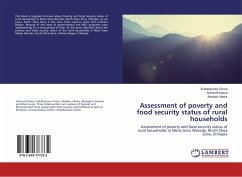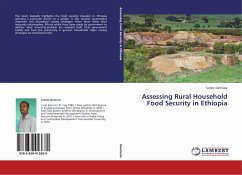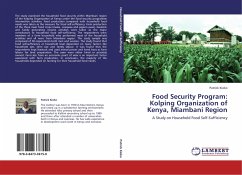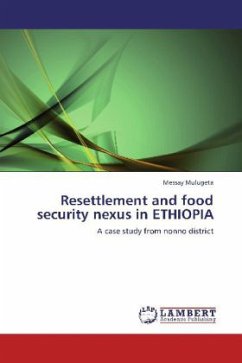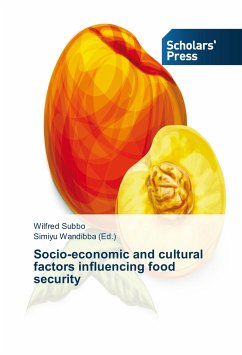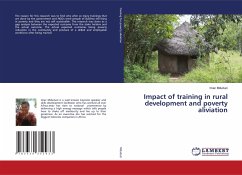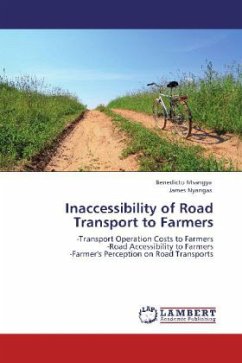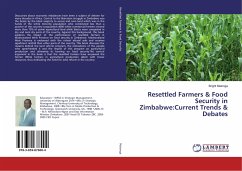
Resettled Farmers & Food Security in Zimbabwe:Current Trends & Debates
Versandkostenfrei!
Versandfertig in 6-10 Tagen
28,99 €
inkl. MwSt.

PAYBACK Punkte
14 °P sammeln!
Discourses about economic imbalances have been a subject of debate for many decades in Africa. Central to the liberation struggle in Zimbabwe was the desire by the black majority to access and own land which was in the hands of the white minority population who constituted less than a quarter of the country's population.4000 white commercial farmers owned more than 75% of prime agricultural land while blacks were congested in dry and semi dry parts of the country. Against this background, this book explores the impact of the performance of resettled farmers in Mashonaland West Province on food...
Discourses about economic imbalances have been a subject of debate for many decades in Africa. Central to the liberation struggle in Zimbabwe was the desire by the black majority to access and own land which was in the hands of the white minority population who constituted less than a quarter of the country's population.4000 white commercial farmers owned more than 75% of prime agricultural land while blacks were congested in dry and semi dry parts of the country. Against this background, this book explores the impact of the performance of resettled farmers in Mashonaland West Province on food security in Zimbabwe. Mashonaland West Province is endowed with the richest alluvial soils and receives significant rainfall than other parts of the country. This book discusses the reasons behind the land reform program, the motivations of the people who spearheaded it and the impact of this program on agricultural production and ultimately its bearing on food security.The central argumentin the book is that the resettled farmers have surpassed the former White farmers in agricultural production albeit with fewer resources, thus vindicating the need for land reform in the country.



